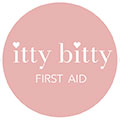How Your Baby's Brain Controls Sleep
Posted by Laura Klein on 24th Jun 2021
One of the 1st jobs of your baby's brain is "state control". This means staying calm for a period of time or having a nice long sleep.
Like a TV remote, "state control" lets your infant "keep the channel on" when something's interesting and they are having a period of alert time (usually after a feed when their blood sugar level is higher).
By contrast, "state control" allows them to "shut the TV off" when it's time for sleep.
Newborns with good "state control" are better at self soothing, according to Dr Harvey Karp.
When the world gets too overwhelming and they've been awake for a time, infants protect themselves from the craziness by shifting attention. You may have noticed your newborn displaying some of these behaviours and signals as they develop their "state control"
- staring into space
- sucking their own lip or finger or fist
- retreating into sleep
- gazing away from the commotion
The ability to switch off and regulate their "state control" reduces cortisol (the stress hormone that releases into the blood stream). Lower cortisol levels lead to a better sleep pattern, that has a roll on effect, hour after hour, day after day.
Newborns tire quickly and parents may not realise how much sleep their little one needs. The amount of sleep and awake time required during the day changes greatly in the first 3 months.
Week 1-2: wake time of 45-75 mins during the day (includes feed and play time)
Week 3-6: wake time of 60-90 mins during the day (includes feed and play time)
Week 7-10: wake time of 70-100 mins during the day (includes feed and play time)
Week 11-16: wake time of 90-150 mins during the day (includes feed and play time)
At night, infants will absolutely wake for a feed ever few hours, but feeding in low light and quiet surrounds will help keep cortisol (the stress hormone) low. Infants may feed for 20-45 mins, nappy change, then straight back to bed.
Bonus Tip: Creating a calm, consistent sleep environment can help newborns regulate their "state control". A dark room, consistent (and quite loud) "white noise" or rainfall, and swaddling (arms up position as supported by the Love to Dream Swaddle Up is highly recommended).
Double Bonus Tip: Did you know babies can only breathe through their nose for the first 6 months, so a clear nasal passage is essential for feeding and sleeping. Clear their nose of snot and boogers in 10 seconds with Australia's favourite battery power snot sucker - Snotty Boss
Enjoy this "4th trimester" with your little one, as you learn more about their patterns, personalities and preferences.
















